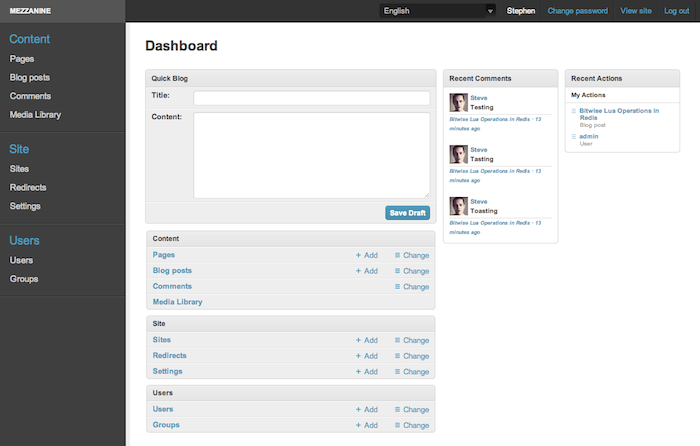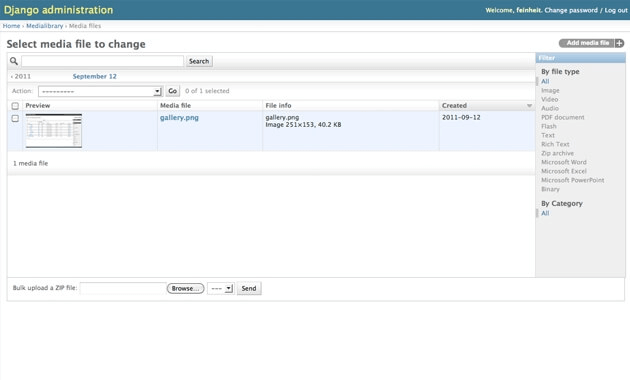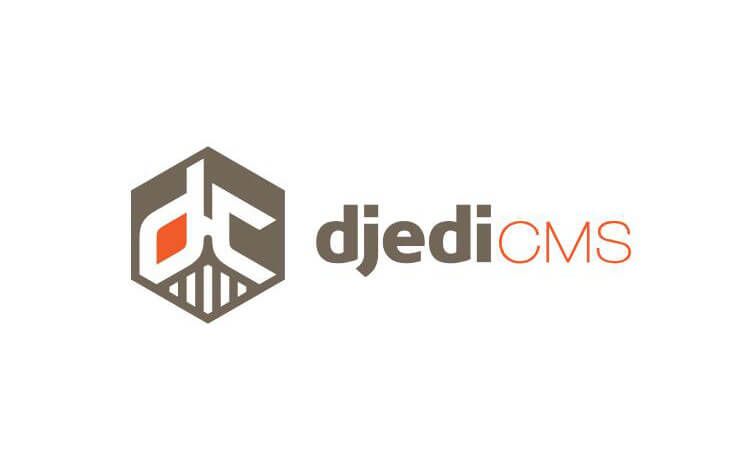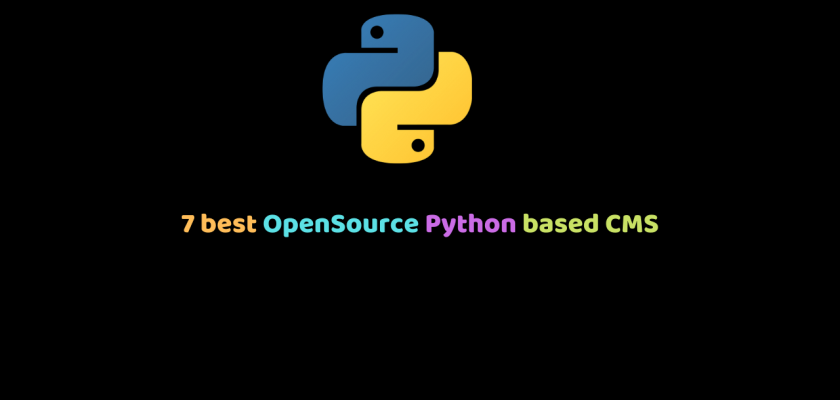It’s amazing that you have decided to use Python based CMS.
So I have decided to share with you 7 best OpenSource Python based CMS.
Python has continued to be the World’s most used programming language and undoubtedly has a huge support base for beginners.
Growth in Artificial Intelligence and Machine Learning has led more persons into learning Python. These have prompted more persons into creating tutorials and courses around Python.
So much has been done by Python developers around the world, promoting it in the Open Source World
If you are a Python Developer and you are looking for a couple of Opensource Python based CMS (Content management system) you could contribute to, learn from or take a few ideas.
This article is specifically for you.
The Best Choice of Python CMS can easily facilitate the working environment, leading to better productivity.
1. WagTail
Wagtail is an open-source content management system built on Django, with a strong community and commercial support.

It’s focused on user experience and offers precise control for designers and developers.
Features
- A fast, attractive interface for authors
- Complete control over front-end design and structure
- Scales to millions of pages and thousands of editors
- Fast out of the box, cache-friendly when you need it
- Content API for ‘headless’ sites with de-coupled front-end
- Runs on a Raspberry Pi or a multi-datacenter cloud platform
- Powerful, integrated search, using Elasticsearch or PostgreSQL
- Excellent support for images and embedded content
- Multi-site and multi-language ready
- Embraces and extends Django
2. Django CMS
An Open-source enterprise content management system based on the Django framework.

Django CMS is user-friendly and has a very intuitive drag and drop interface.
Features
- hierarchical pages
- extensive built-in support for multilingual websites
- multi-site support
- draft/publish workflows
- version control
- a sophisticated publishing architecture, that’s also usable in your own applications
- frontend content editing
- a hierarchical content structure for nested plugins
- an extensible navigation system that your own applications can hook into
- SEO-friendly URLs
- designed to integrate thoroughly into other applications
3. Mezzanine
Mezzanine is a powerful, consistent, and flexible content management platform. Built using the Django framework, Mezzanine provides a simple yet highly extensible architecture that encourages diving in and hacking on the code.

Features
In addition to the usual features provided by Django such as MVC architecture, ORM, templating, caching and an automatic admin interface, Mezzanine provides the following:
- Hierarchical page navigation
- Save as draft and preview on site
- Scheduled publishing
- Drag-and-drop page ordering
- WYSIWYG editing
- In-line page editing
- Drag-and-drop HTML5 forms builder with CSV export
- SEO friendly URLs and metadata
- Ecommerce / Shopping cart module
- Configurable dashboard widgets
4. Kotti
Kotti is a high-level, Pythonic web application framework based on Pyramid and SQLAlchemy.

It includes an extensible Content Management System called the Kotti CMS offering all the features you would expect from a modern CMS.
Features
- User-friendliness
- WYSIWYG editor
- Responsive design
- Templating
- Add-ons
- Security
- Internationalized
5. FeinCMS
One of the most advanced Content Management Systems built on Django.
It lets you reorder page content blocks using a drag-drop interface, and you can add as many content blocks to a region.

FeinCMS also provides helper functions, which provide ordered lists of page content blocks.
Features
- Simple content management
- Only the features you really need
- Does everything you need
6. Plone
Plone is a user-friendly and extensible Content Management System running on top of Python and Zope.

Plone is easy to set up, extremely flexible and provides you with a system for managing web content that is ideal for project groups, communities, web sites, extranets, and intranets.
Features
- RDBMS integration
- Python extensions
- Object-Oriented Database
- Web configurable workflow
- pluggable membership and authentication
- Undo’s and Form validation
7. Djedi CMS
Djedi CMS is a lightweight but yet powerful Django content management system with plugins, inline editing, and performance in mind.

It differs from other CMS’s in a controlled manner. Your URLs, views, and templates stay intact and remain Django standard.
Features
- Templates
- Plugins
- inline editing
- High performance
Conclusion
Open source Python based CMS will continue to be important and ever useful to programmers. One of them could even spark your creative programming juices.
moreover, if you ever work on one, please share it with us on the comment section, we would love to know about it and I am sure other Python developers would like to contribute when they see it.


